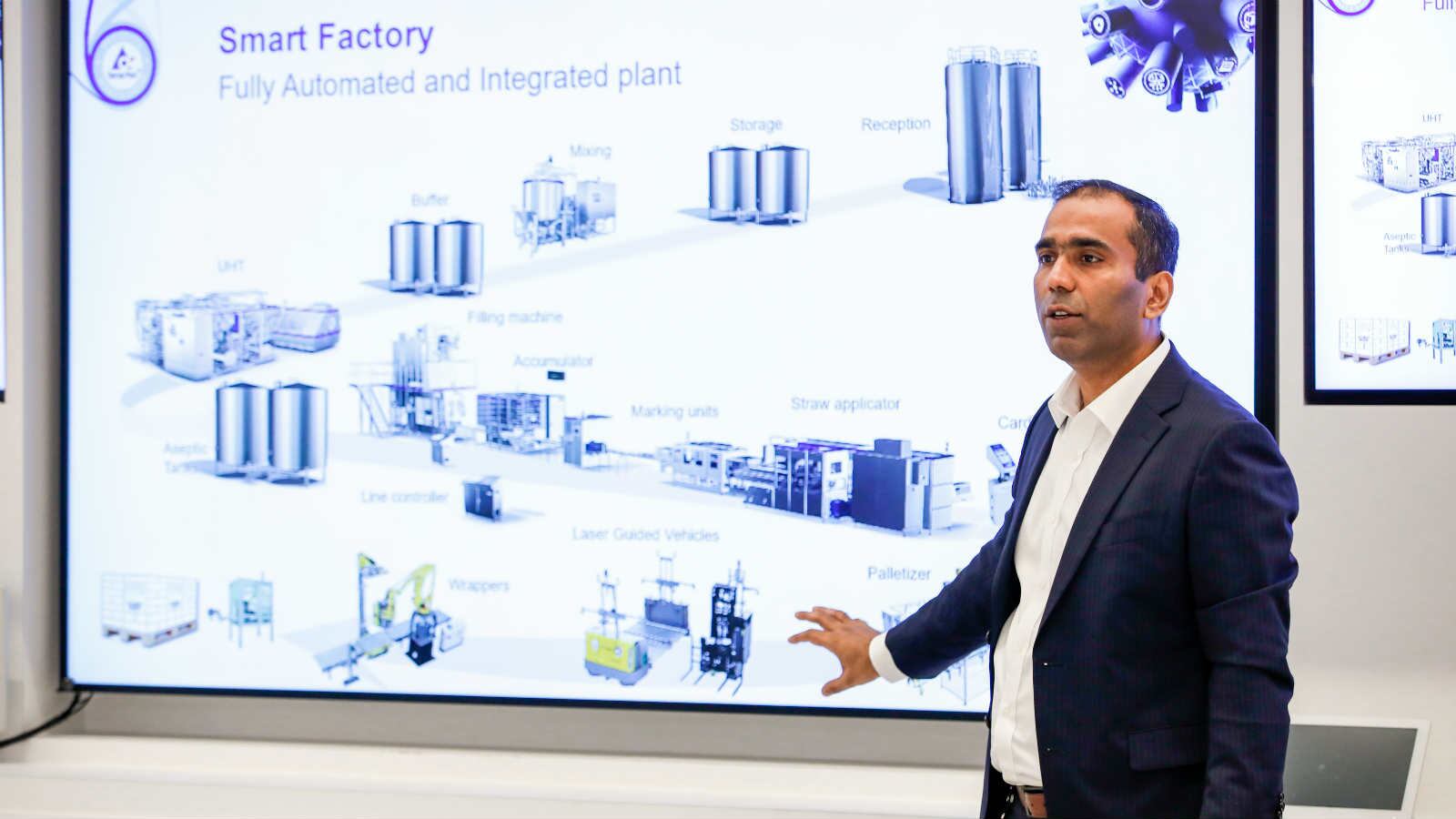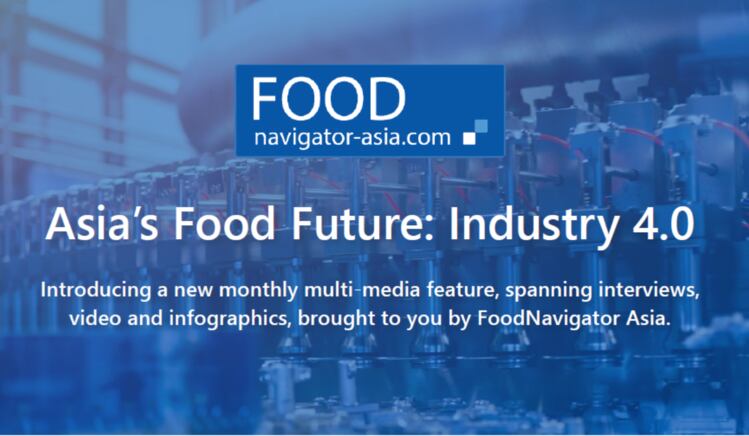According to Tetra Pak Asia Pacific Services Digital Transformation Manager Somashekar Ganganna, Industry 4.0 is a ‘natural evolution’ driven by technology, and has had proven benefits in many industries.
Industry 4.0 is considered the fourth overall global industrial revolution, led by digital-physical production and enabled by data and technology. It was preceded by Industry 1.0 in the 1700s (Mechanical production driven by steam), Industry 2.0 in the 19th century (Mass production driven by electricity and labour division) and Industry 3.0 (Automated production led by electronics and IT).
“The food and beverage industry is just starting this Industry 4.0 journey with some 20% to 40% uptake, as compared to others like Oil and Gas (over 80% uptake) or Automotive (45% to 60% uptake),” Ganganna told Foodnavigator-Asia at an exclusive event for Thai and Singapore media.
He added that the benefits for the industry stretched across many areas for its major stakeholders (regulators, retailers and consumers, and F&B business owners/investors), and clearly demonstrated a means of ‘improving competitiveness so as to facilitate future growth’.
“The three major benefits from Industry 4.0 that can be observed, especially for F&B producers, are flexibility, food safety and quality and improved productivity,” he said.
“Flexibility and productivity are definitely very important to the business owners [such that the business can adapt and grow] based on current investments, for example running multiple products or multiple product sizes in one production line versus multiple lines. This is also vital for retailers, who want options that allow them to not over-stock products and waste shop space.
“Safety and quality are key to address the concerns of regulators, who definitely want to know how producers are ensuring that the food is safe.
“All of the above are important to satisfy consumers today, which are increasingly ‘picky’ in terms of demands and want products close and customised to their own preferences.”
Predictive maintenance
One of the major Industry 4.0 areas Ganganna emphasised was that of predictive maintenance, which is basically to predict failures in advance so as to boost productivity.
“When it comes to machine maintenance, especially, there are preventive actions (in advance of a stop/breakdown) and there are corrective actions (after a stop/breakdown occurs),” he said.
“Within preventive actions, there are predetermined actions which are fixed and will always take place e.g. changing a motor after it is worn out, and condition-based actions which are today manually done by humans (based on their judgement).
“What predictive maintenance aims to do is to input sensors to the machines so as to detect when to make these changes, so as to reduce the chance of errors as well as maintenance costs.”
He added that the main benefits of such a system are the reduction of machine downtime and increase in availability so as to minimally affect production schedules.
“There will be far less need to stop machines to do any unnecessary checks and maintenance as the sensors will alert when needed, and the need for corrective actions will also be reduced,” he said.
At present, over 5,000 of Tetra Pak-powered production lines are digitally connected and monitored using its in-house condition-monitoring system, some 1,300 of which are located within Asia Pacific. The food manufacturing equipment in these lines have sensors attached to gather data on motors, peroxide pumps, sterile systems and more for monitoring.
“The future for us is to add more sensors to cover more areas, and the end goal is to do this for entire plants so these can be run effectively. There would be no need to stock up on spare parts, or for any replacements to be made if not required,” said Ganganna.
Tetra Pak CIC
The media event was held at Tetra Pak’s Customer Innovation Centre (CIC) in Singapore, where Ganganna presented on the company’s increasing focus into Industry 4.0-related solutions.
The CIC also boasted the establishment of an Automation Room and a miniature plant to demonstrate these solutions, as well as Augmented Reality (AR) and Virtual Reality (VR) tools that enable the digital visualisation of entire production lines and equipment without anything being physically built.
“The Singapore CIC is a hybrid product and ideation centre, and this particular facility also houses an R&D centre. Our unique offering here in Singapore is for soy, tea, coconut and plant-based products,” Tetra Pak Asia Pacific Cluster Marketing Services Director Ratanasiri Tilokskulchai told us.
“The centre enables production trials to be run in a cheap and effective manner such that manufacturers will not need to stop any onsite manufacturing to investigate the production process for a new product, which would cost both time and money.”





